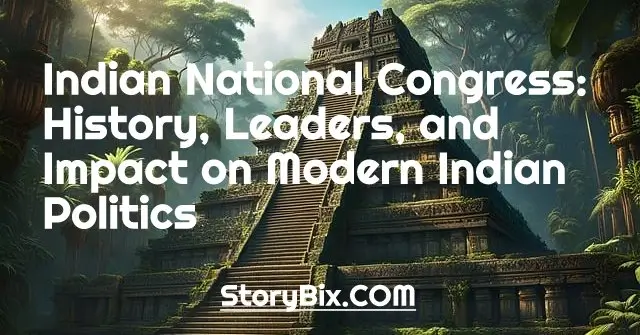Delve into the rich history of the Indian National Congress (INC), a pivotal player in the political tapestry of India. Established in 1885, the INC played a crucial role in the national movement for independence and has since been a major influence in shaping the democratic framework of the country.
Foundational Years and the Freedom Struggle:
The Indian National Congress was founded with the intent to form a platform for civil and political dialogue among Indians. Under the leadership of prominent figures such as Dadabhai Naoroji, Bal Gangadhar Tilak, and later Mahatma Gandhi, the INC became the principal leader in the fight for India's independence from British rule. Its early demands were moderate, focusing on greater representation in government and public administration.
Leadership and Ideologies:
The INC's ideology has evolved over the years, incorporating elements of socialism, secularism, and liberal economic policies. Key leaders like Jawaharlal Nehru, Indira Gandhi, and Rajiv Gandhi have shaped its policies and direction. Their leadership periods marked significant transformations in India's socio-economic fabric, including the introduction of the Green Revolution and liberalization policies in the late 20th century.
Major Achievements and Impact:
As the flag-bearer of India's freedom movement, the INC's major achievements lie in its successful campaign against British colonial rule, culminating in India's independence in 1947. Post-independence, its contributions include the establishment of a secular constitution, significant industrialization, and the nationalization of major industries which laid the foundation for India’s economic policies.
Contemporary Role and Challenges:
In contemporary times, the INC continues to play a vital role in Indian politics as the main opposition party. It faces challenges such as political rejuvenation and defining its stance on modern issues like digital economy, climate change, and social justice. Despite these challenges, it remains a key player in advocating for policy changes and social reforms.
The Legacy and Future:
The legacy of the INC is intertwined with the history of modern India. As it moves forward, the party is focusing on reconnecting with the grassroots and redefining its ideologies to better match the aspirations of a new generation of Indians. The evolution of the INC will be crucial in shaping the political landscape of India in the years to come.
Conclusion:
The Indian National Congress is not just a political party but a historical movement that has deeply influenced the socio-political fabric of India. From its inception as a forum for airing Indian grievances to its pivotal role in the independence movement and its contributions to building a modern nation-state, the INC's journey is a testament to the complexities of governing a diverse and populous nation like India. It continues to be a critical voice in shaping India’s democracy and policy direction.
